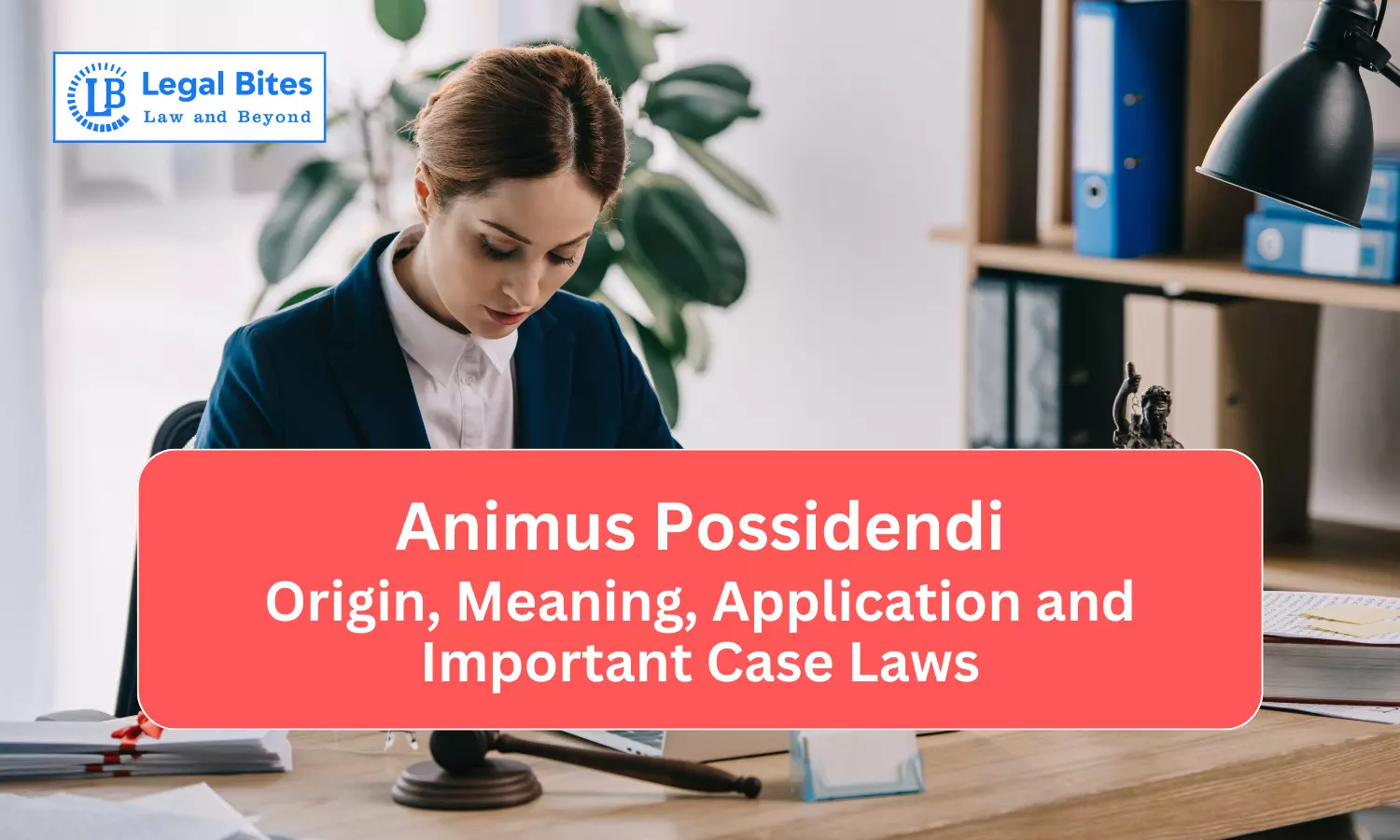Animus Possidendi: Origin, Meaning, Application and Important Case Laws
This article on “Animus Possidendi” by Sahajpreet Bhusari explains the meaning of the Latin maxim and elaborates on its application with illustrations. Origin and Meaning The legal maxim Animus Possidendi is a term of Latin origin. Animus means ‘mind or intention’ and Possidendi means ‘to possess’ and hence, the term literally means an intention to possess. It is… Read More »

This article on “Animus Possidendi” explains the meaning of the Latin maxim and elaborates on its application with illustrations. Origin and Meaning The legal maxim Animus Possidendi is a term of Latin origin. Animus means ‘mind or intention’ and Possidendi means ‘to possess’ and hence, the term literally means an intention to possess. It is synonymous with Animus Occupandi and De Jure possession. Explanation Possession means having physical control over...
This article on “Animus Possidendi” explains the meaning of the Latin maxim and elaborates on its application with illustrations.
Origin and Meaning
The legal maxim Animus Possidendi is a term of Latin origin. Animus means ‘mind or intention’ and Possidendi means ‘to possess’ and hence, the term literally means an intention to possess. It is synonymous with Animus Occupandi and De Jure possession.
Explanation
Possession means having physical control over a property. In the words of Salmond, it can also be said to be the exclusive right to use that property.
In order to claim a right on a property or thing, two elements are required to be proved,
- Intention to possess: Animus Possidendi
- Actual possession of property: Factum/ Corpus Possidendi
Physical control, accompanied by the intention to exercise such control, is necessary for exercising absolute rights. The mental intention of the possessor to exclude others from interring with the possessor’s right of possession is called Animus Possidendi.
Application
The basic purpose of this maxim is to confirm certain lawful rights to the owner and penalize the people who interfere with the possession of the property (For example, nuisance, trespass, etc.).
Some characteristics of Animus Possidendi are:
- Mental element
- The intention involved is not always pure and might be illegal as well (For example, theft).
- It need not be absolute (For example, even if people possess a right to way over a property, the owner is the one who has the actual possession).
- It need not be over one’s own property (For example, lease, tenancy, etc.)
Illustrations
- If the tenant leaves the building substantially furnished so that he can come back and reside, the tenant is said to have proved his intention to stay there (Animus Possidendi) and the mere physical absence of the tenant will not mean the end of the contract of tenancy.
- Servant has control and manages the property but the real ownership vests with the owner because of the absence of Animus Possidendi.
Important Case Law
The court in the case of N.N. Majumdar v. State[1], the court held that corpus (possession in fact) must be accompanied with animus (possession of law) and that corpus without animus is ineffective.
Reference
[1] AIR 1951 Cal 140.


